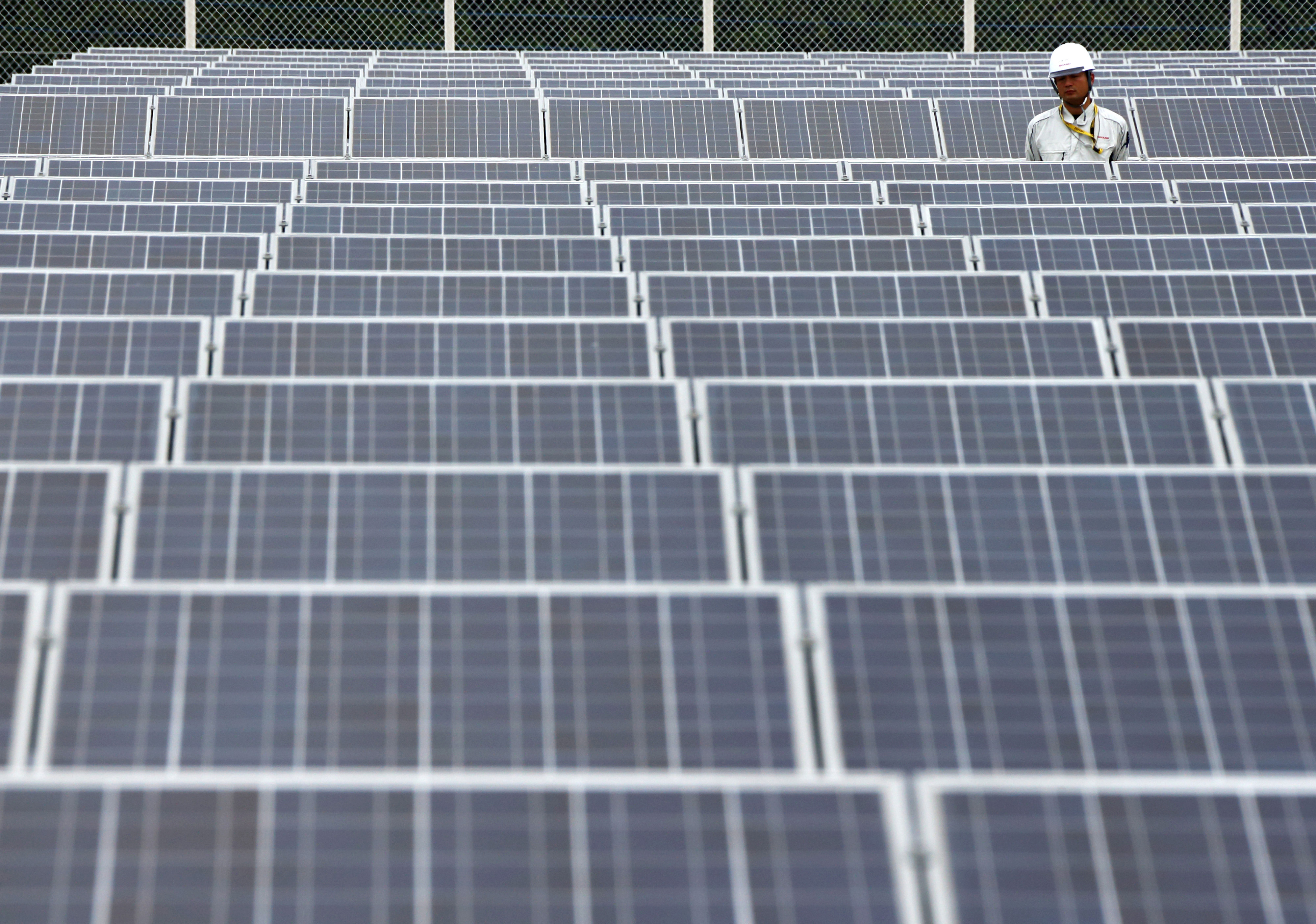Japan's plan to mothball at least five aging nuclear reactors highlights the challenge Prime Minister Shinzo Abe faces as his administration debates how to replace lost electricity generation with power sources that are cheap, clean and safe.
The decision announced by the reactors' operators last month to decommission the plants, all dating from the 1970s, will eliminate output equivalent to about 65 percent of the power produced by all the solar panels currently installed nationwide. That's even after solar use has surged, making Japan the second-biggest solar market in the world for two years running.
The policies are under a microscope as Abe's ruling Liberal Democratic Party indicated earlier this month it wants to see nuclear energy play a prominent role in generating the nation's electricity, a plan opposed by most voters following the 2011 meltdowns in Fukushima. In the meantime, policymakers are wrestling with how to mix in renewables with traditional forms of energy and determining what scale of greenhouse gas cuts it can promise for a United Nations deal on global warming this year.


















With your current subscription plan you can comment on stories. However, before writing your first comment, please create a display name in the Profile section of your subscriber account page.